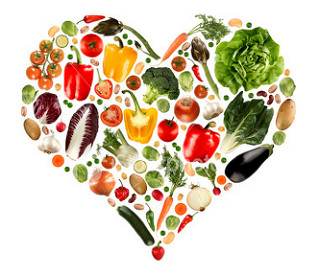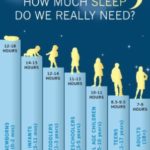
When it goes to adopting a healthy lifestyle and maintain a healthy weight, there is nothing worse than consuming too much simple carbohydrate (low fiber, easy to be digested type such as white bread and most of the highly processed food) and sugar (including glucose, fructose; basically anything ending with the suffice -ose). Note that fiber serves as a “buffer” to avoid the rapid sugar absorption, hence immediate insulin spiking. In addition, eating a lot of sugar also means it’s likely you’re not eating enough protein and fiber, both important nutrients for sustained energy. Any excess of sugar not consumed by your body (not enough activities) get converted into fatty acids and triglycerides for long-term energy storage, i.e. your body fat. Following are probably the signs you have too much of them.
1. You constantly crave sugary things
The more sugar you eat, the more you’ll crave it, that means consuming more sugar – it becomes a vicious and addictive cycle you cause a hormonal response in your body that’s like a wave, it brings you up and then you crash down and it triggers your body to want more sugar.
2. You feel foggy after a meal and more sluggish and sometimes moodier throughout the day
Sugar causes an initial spike of insulin and that “high” feeling with an inevitable subsequent crash. The foggy feeling is a common sign of low blood sugar. When you eat a lot of sugar, your blood sugar levels rapidly rise and fall instead of gradually doing so. Poor blood sugar control can be a major risk for cognitive issues and impairment. The blood sugar crash that happens when you’re coming off a sugar high can also cause mood swings and leave you feeling crabby. Not to mention, if your energy is also tanking, that just contributes to a bad attitude.
3. You’ve been putting on weight.
Excess sugar is excess calories, and since it has no protein or fiber, it doesn’t fill you up (so you just keep eating it). It also triggers the release of insulin, a hormone that plays a separate crucial role in weight gain.
4. You were told by your physician you are “borderline” diabetes.
The excess insulin over time, can lead to insulin resistance and earlier demise of your insulin producing functions by overworking- a basic pathophsiology of diabetes! Insulin resistance means our bodies can’t respond to normal amounts of insulin properly and therefore demanding excess insulin to compensate for the resistance. The pancreas works in overdrive far too long could turn you into a diabetes, especially if you have a family history of diabetes.
5. Your skin won’t stop breaking out.
For those who are sensitive to getting a spike in insulin from sugar intake, it might set off a hormonal cascade that can lead to a breakout like acne or rosacea. A sugar binge can show up on your face in just a few days. You might want to reassessing your diet before buying some expensive skin care products.
6. You’ve been getting more cavities.
When bacteria chow down on food particles in between the teeth, acid is produced, which causes tooth decay. Our saliva maintains a healthy balance of bacteria on its own, but eating sugar can impact the pH and throw off the natural ecosystem. This gives the bacteria a chance to thrive and multiply, leading to cavities.
8. Nothing tastes as sweet as it used to.
Sugar over consumption causes your taste bud sugar tolerance to go up, so you need more and more sugar to satisfy that sweet craving. When you cut back and “re-train” your taste bud, you’ll eventually lower your tolerance and be content with minimal sugar. Once you adjust to the new norm, you will feel like things are too sweet for you very soon.




















